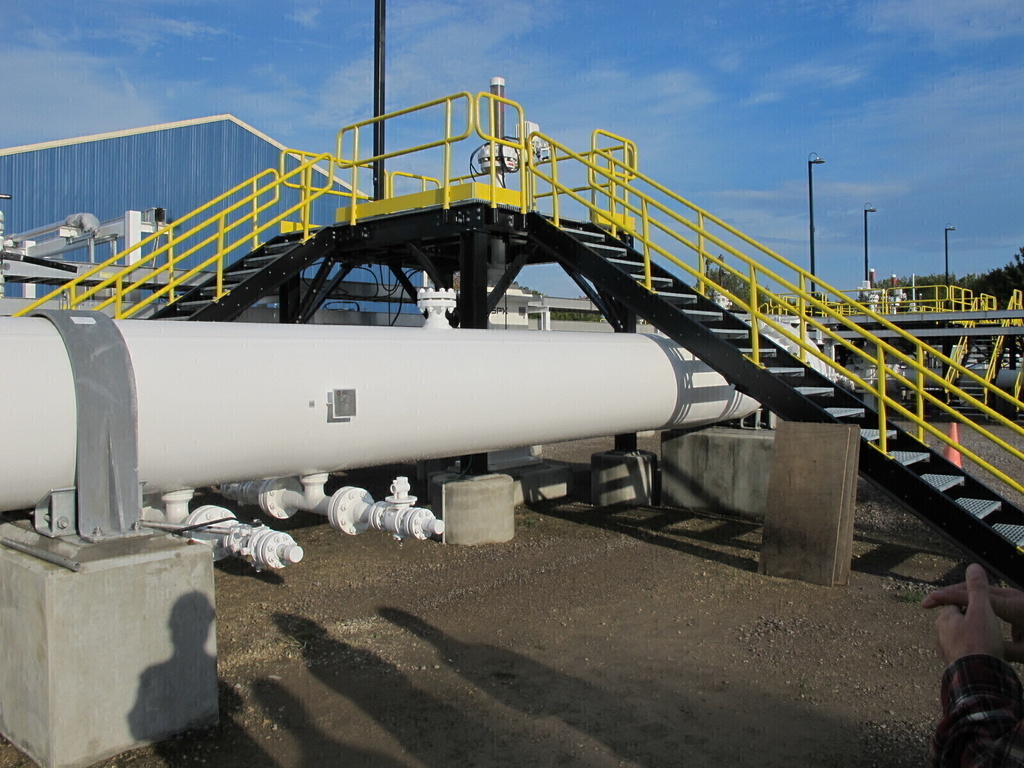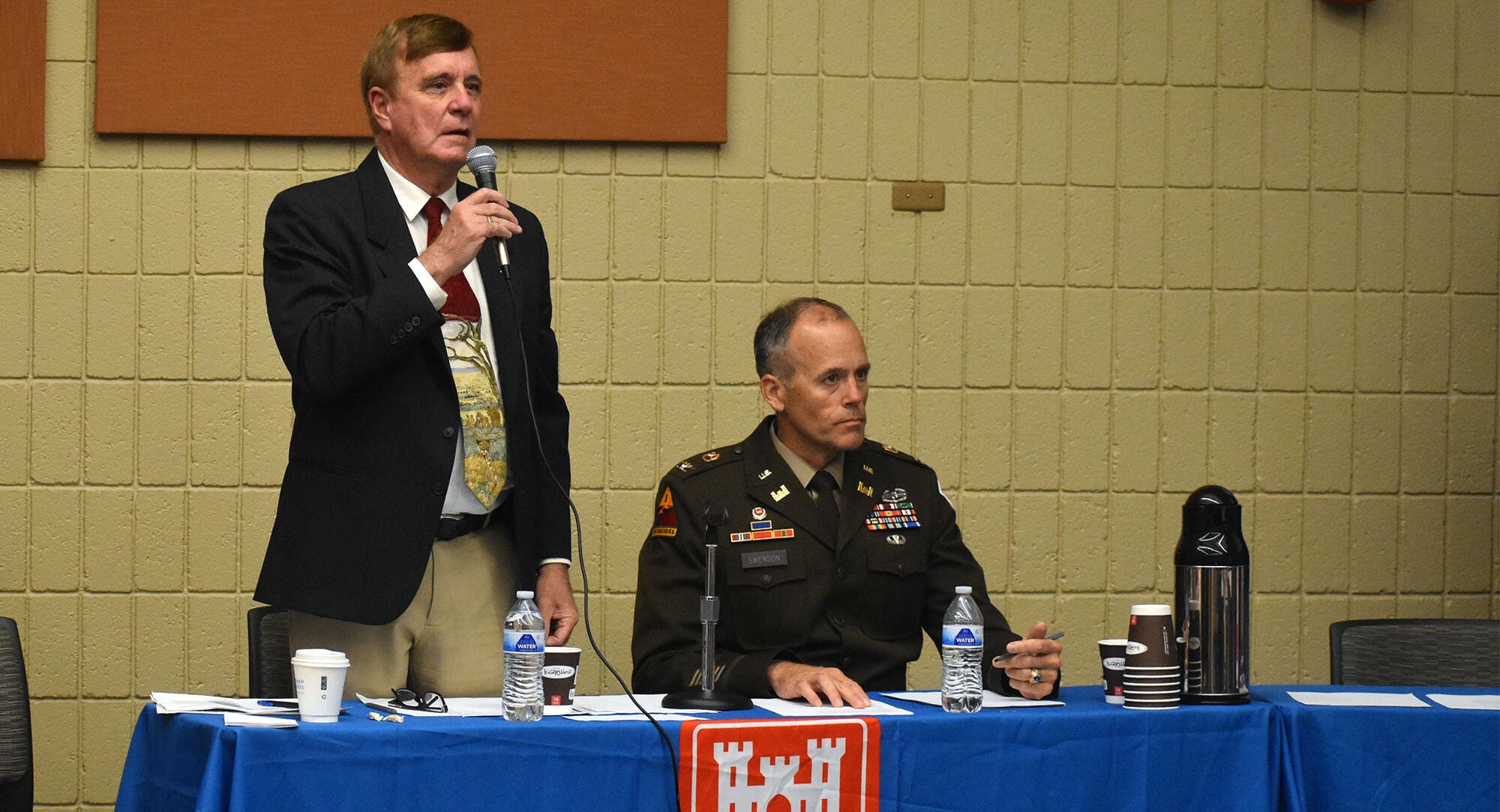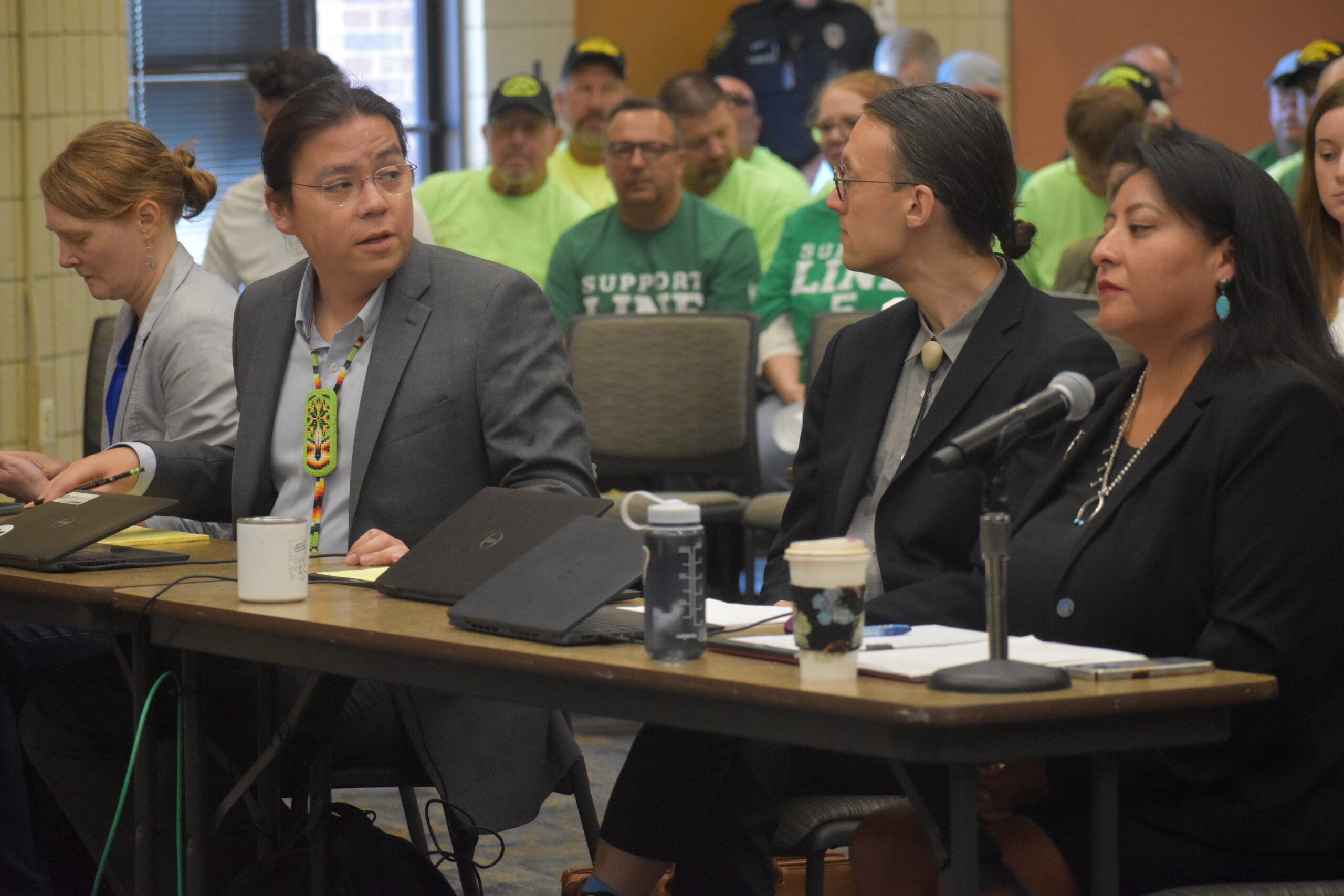A federal appeals court will hear oral arguments Thursday in a case that has a Canadian energy firm and a Lake Superior tribe fighting over the fate of an oil and gas pipeline running across northern Wisconsin.
The 70-year-old Line 5 operated by Enbridge, Inc. can carry up to 23 million gallons per day of light crude oil and natural gas liquids from Superior across northern Wisconsin and Michigan to Sarnia, Ontario.
Last year, a federal judge ordered Enbridge to pay $5.1 million for trespassing on lands owned by the Bad River Band of Lake Superior Chippewa. U.S. District Court Judge William Conley ruled the company must remove its Line 5 pipeline from those lands within three years.
The decision came nearly four years after the tribe sued Enbridge to shut down and remove the pipeline from the Bad River reservation. The company’s easements expired on a dozen parcels of land in 2013, and the tribe refused to renew them. In 2022, Conley ruled Enbridge has been trespassing on those lands, entitling the band to a financial remedy.
The tribe filed the lawsuit over fears that erosion on the banks of the Bad River may expose the pipeline and leave it vulnerable to rupture. In response, Enbridge has proposed a $450 million reroute of a 41-mile segment of the pipeline around the tribe’s reservation in Ashland and Iron counties.
News with a little more humanity
WPR’s “Wisconsin Today” newsletter keeps you connected to the state you love without feeling overwhelmed. No paywall. No agenda. No corporate filter.
Last June, Conley found conditions near the pipeline created an unreasonable risk of failure. However, he said the threat was not so great that it required an immediate shutdown. Instead, he allowed Enbridge time to obtain permits for the proposed reroute or time for the market to adjust.
Neither the Bad River tribe nor Enbridge was pleased with the ruling, and both appealed the decision to the 7th Circuit Court of Appeals.
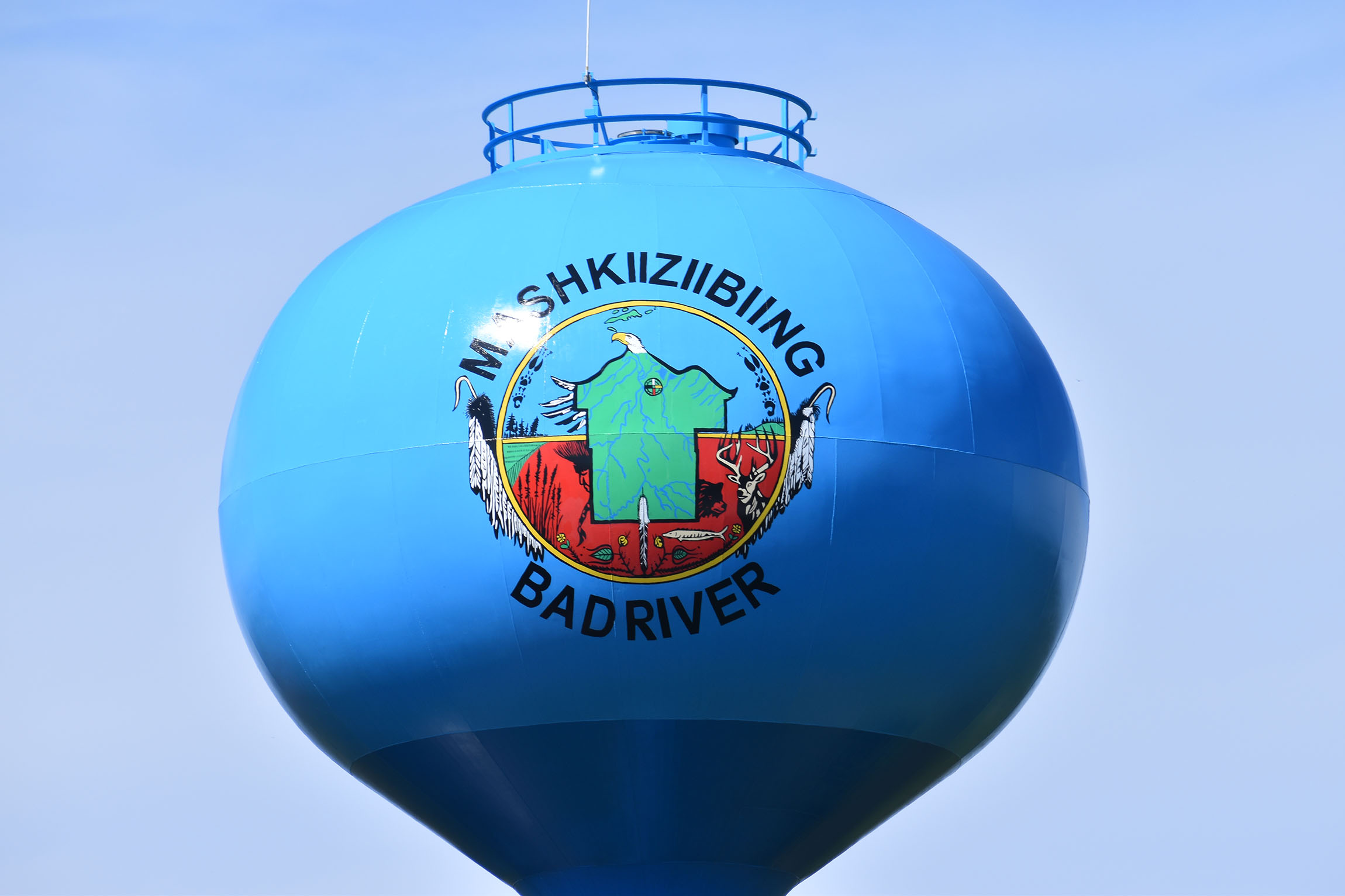
What is the tribe seeking?
The Bad River tribe wants the federal appeals court to order Enbridge to turn over profits from the continued operation of Line 5 and immediately stop trespassing on tribal lands. In a brief before the court, the tribe’s attorneys say the company has made more than $1.1 billion in profits from Line 5 after the expiration of the reservation easements.
Since then, attorneys note the river is now closer to the pipeline as flooding last spring brought its banks at its closest spot within 11 feet of Line 5 at a bend in the waterway. They say the tribe faces an “imminent threat of environmental devastation.”
“Another, similar spring will bring exposure of the pipeline and loss of the soil underneath,” attorneys wrote in the court filing. “When that happens, the pipeline will rupture, devastating the Bad River, the internationally recognized wild rice sloughs that lie at its mouth, and Lake Superior beyond.”
The tribe’s attorneys argue the Non-Intercourse Act bars courts from implementing what they argue amounts to forced easements across tribal lands if the pipeline is allowed to operate for three more years. The law bars the sale, lease or conveyance of tribal land without the approval of the federal government.
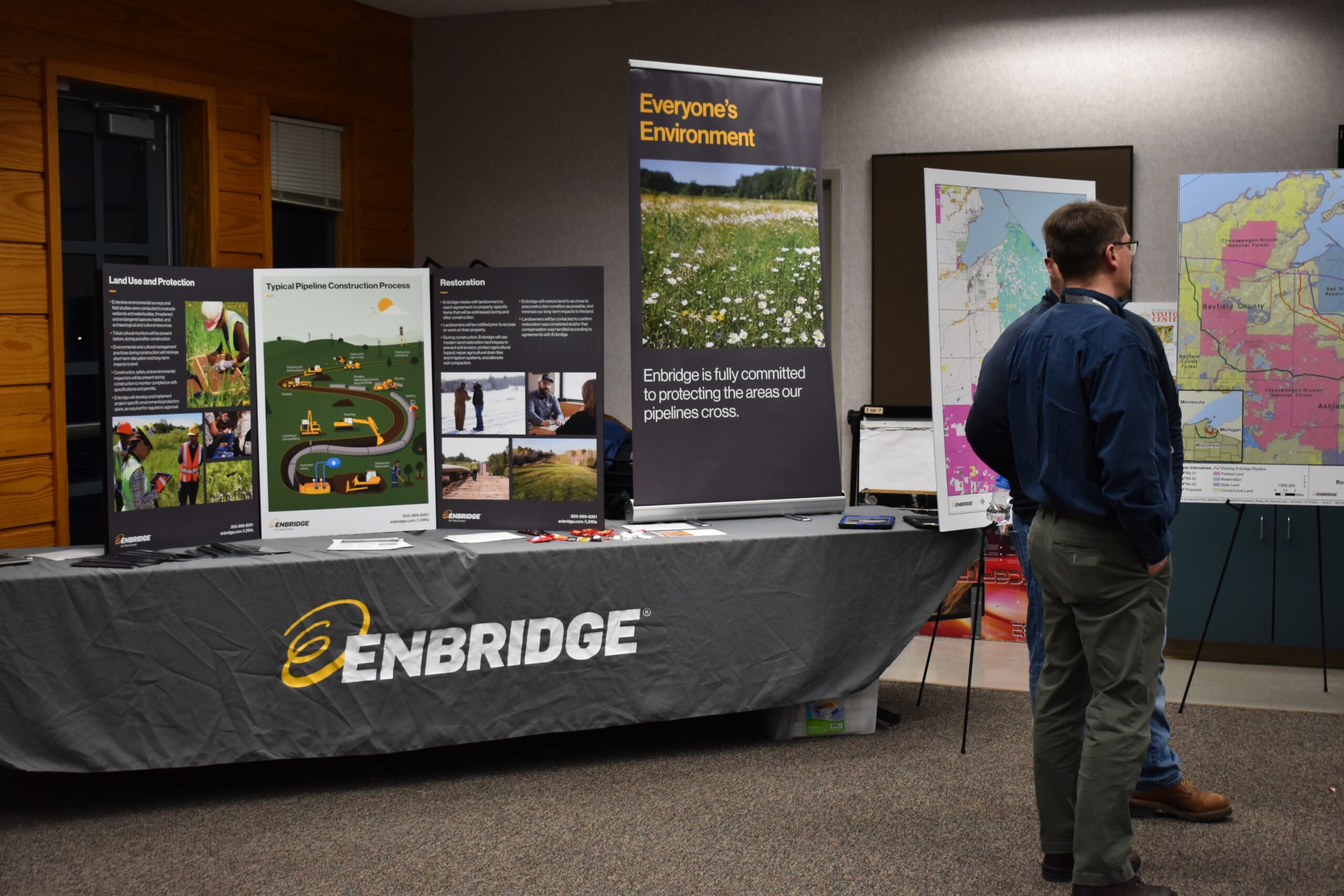
What does Enbridge argue?
Enbridge argues the company isn’t trespassing on lands with expired easements because the tribe signed a 1992 agreement that the pipeline would continue to operate until 2043 in exchange for $800,000.
The company accuses the tribe of breaching its commitment, saying it’s entitled to the tribe’s consent and “the benefit of the bargain.” Enbridge also claims easements on the 12 parcels haven’t yet expired under the federal Administrative Procedure Act because a final decision on their renewal is still pending.
Enbridge also maintains that Conley’s ruling was wrong because it didn’t weigh the tribe’s refusal to allow projects to slow erosion or the “catastrophic effects” of a shutdown on the public.
“Harm to the public from shutting down Line 5 is undisputed,” Enbridge attorneys wrote in a court filing. “Millions in Canada and the Midwest depend on the propane derived from the natural gas liquids transported on Line 5 for heating, and any shutdown would cause disruption and long-term uncertainty on a massive scale.”
The company also argues the federal Pipeline Safety Act oversees when a pipeline may pose a safety risk and require a shutdown. Enbridge adds that a 1977 treaty between the U.S. and Canada bars any permanent shutdown of cross-border pipelines like Line 5. The Canadian government has invoked that treaty amid legal challenges to the pipeline’s operation in Wisconsin and Michigan.
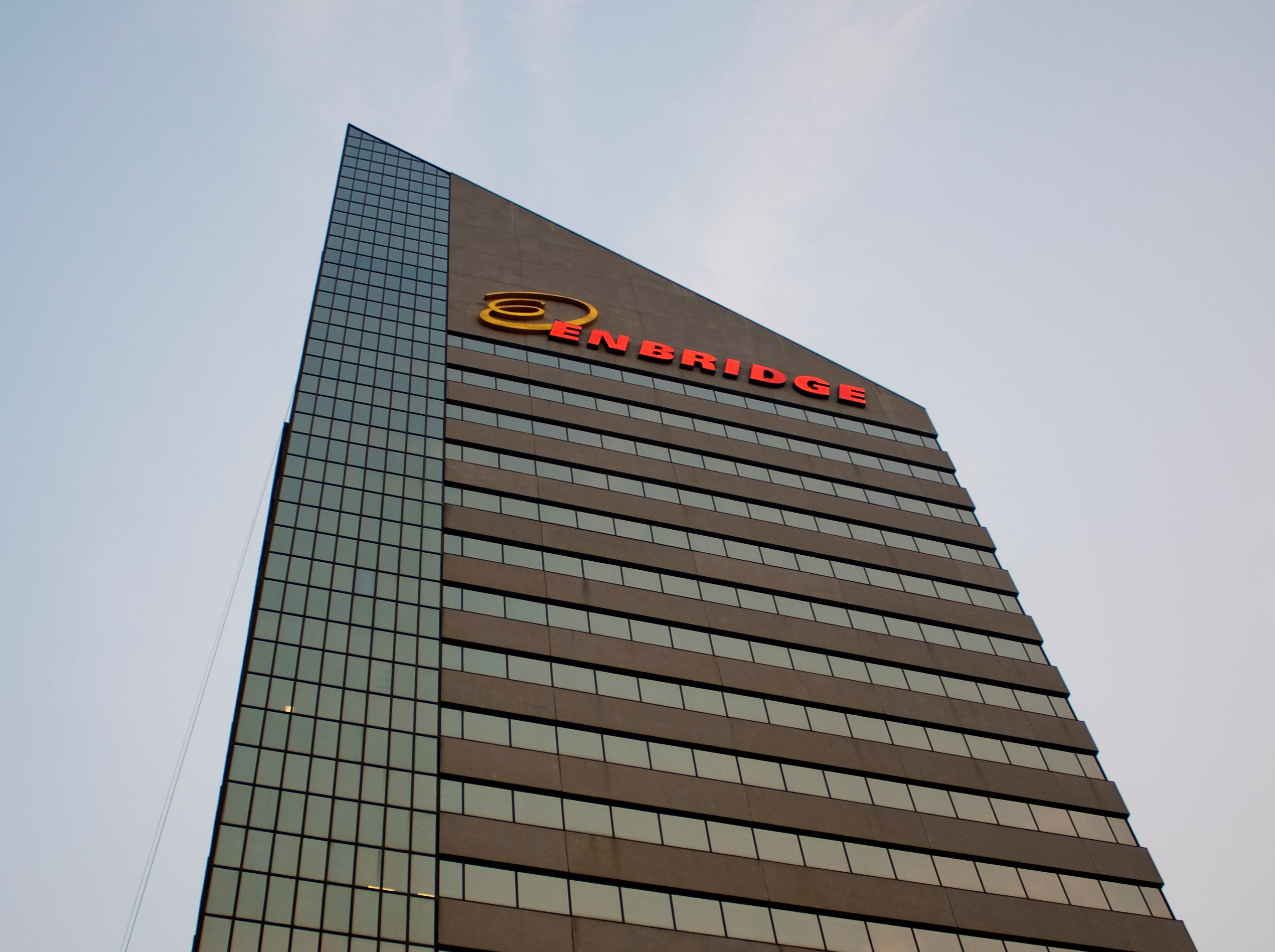
What are supporters and opponents of a shutdown saying?
Wisconsin Manufacturers and Commerce, the state’s largest business lobby, and the Canadian government support continued operation of Line 5. In a court filing, an attorney for the Canadian government said there should be no permanent shutdown except as permitted under the cross-border treaty or until Enbridge secures all necessary permits to reroute the pipeline around the reservation.
WMC argued in a court filing that the shutdown of Line 5 may lead to price increases for propane and gasoline. The group also cited figures from an Enbridge expert who said it would be more costly to transport fuel by rail or require an additional 3,100 trucks on Wisconsin roads without Line 5. The group echoed Enbridge claims that 10 refiners in the U.S. and Canada would lose about 38 percent of their total crude oil supply due to a shutdown, threatening the loss of thousands of jobs. The tribe’s experts have said such claims are overstated.
Meanwhile, more than 30 tribal nations and organizations, including Wisconsin tribes, said in a brief filed with the court that Enbridge’s actions continue a centuries-long practice of stripping lands from tribes. They fear the lower court’s ruling threatens to undermine tribal sovereignty and fails to deter corporations like Enbridge from trespassing on tribal lands.
Meanwhile, environmental groups like Clean Wisconsin argue continued operation of Line 5 risks an “imminent rupture” that would harm Lake Superior, fish, wildlife and tribal resources such as wild rice. They and others have highlighted that Line 5 has experienced at least 30 spills on land that released more than 1.1 million gallons of crude oil. Enbridge has said there’s never been a spill on the Bad River reservation.
Wisconsin Public Radio, © Copyright 2026, Board of Regents of the University of Wisconsin System and Wisconsin Educational Communications Board.

